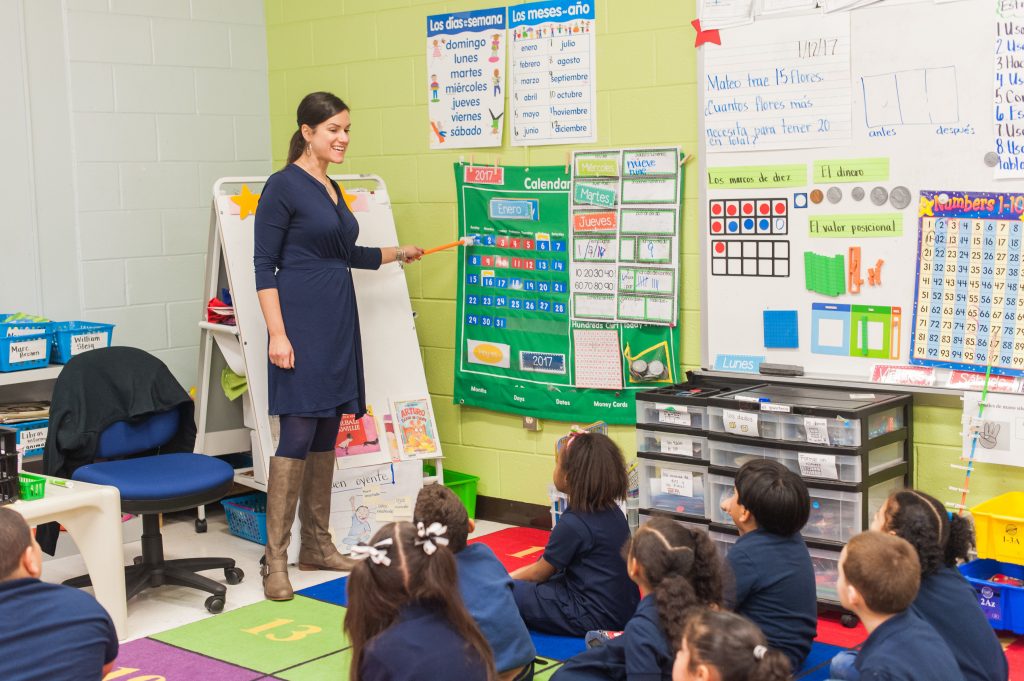
Language Accessibility: An Equity Priority for Mastery
According to the latest data from the U.S. Census, in Philadelphia alone, at least 146 languages are spoken at home, and about 23 percent of residents aged 5 and over speak a language other than English at home.[1]
It is no wonder why Nikki Spector, ESL teacher at Mastery’s Thomas Elementary, makes language accessibility a priority for her school and the 24 schools in Mastery’s network.
At Thomas Elementary, Spector is one of four ESL teachers. Families are reported to speak Spanish, Burmese, Chinese, Karen, Arabic, Nepali, Indonesian, Vietnamese, and Fulani. It is challenging to meet the translation and interpreting needs of each student and their families.
“It’s not a perfect system,” said Spector. “A lot of the responsibility falls on ESL teachers and teams across the network to help families translate communications.”
As Mastery continues its work to become a model, urban public school district, language accessibility has risen to the forefront as a priority in creating equitable learning environments. While federal law mandates that schools provide documents and communications in the families’ native language, there is no guidance as to how that should be done.
In Camden, Molina Lower has prioritized providing a high-quality bilingual program to students and families. The full staff is invested in engaging with families in both English and Spanish. Molina Lower is proud to shelter students’ native language and also expose them to more dialects of Spanish like Nicaraguan Spanish, Mexican Spanish, and Venezuelan Spanish.
Across the entire Mastery network, approximately 10 interpreters have been retained to provide translation services for important documents, town hall meetings, and other essential communications. Additionally, Mastery’s website, masterycharter.org, has been updated to translate the website in seven languages. Even within the last year, Mastery has also initiated digital interpretation tools via programs like ZOOM to aid communication and learning while at home. Mastery is committed to partnering with every family to meet their students’ needs and language accessibility is vital to this effort.
“Language is an equity issue,” said Spector. “We are taking steps to address it, but it needs to be something that every single member of the Mastery community feels responsible for.”
At Mastery, we know that it is key for each member of our community to be educated, aware, and accepting of our multilingual families. We are inspired by the persistence and dedication of staff members like Ms. Spector, who continue to advocate for their students and families. The steps we’ve taken, while incomplete, are the foundation of Mastery’s commitment to communicating equitably within our school communities.
[1] U.S. Census Bureau, American Community Survey, 2015-2019